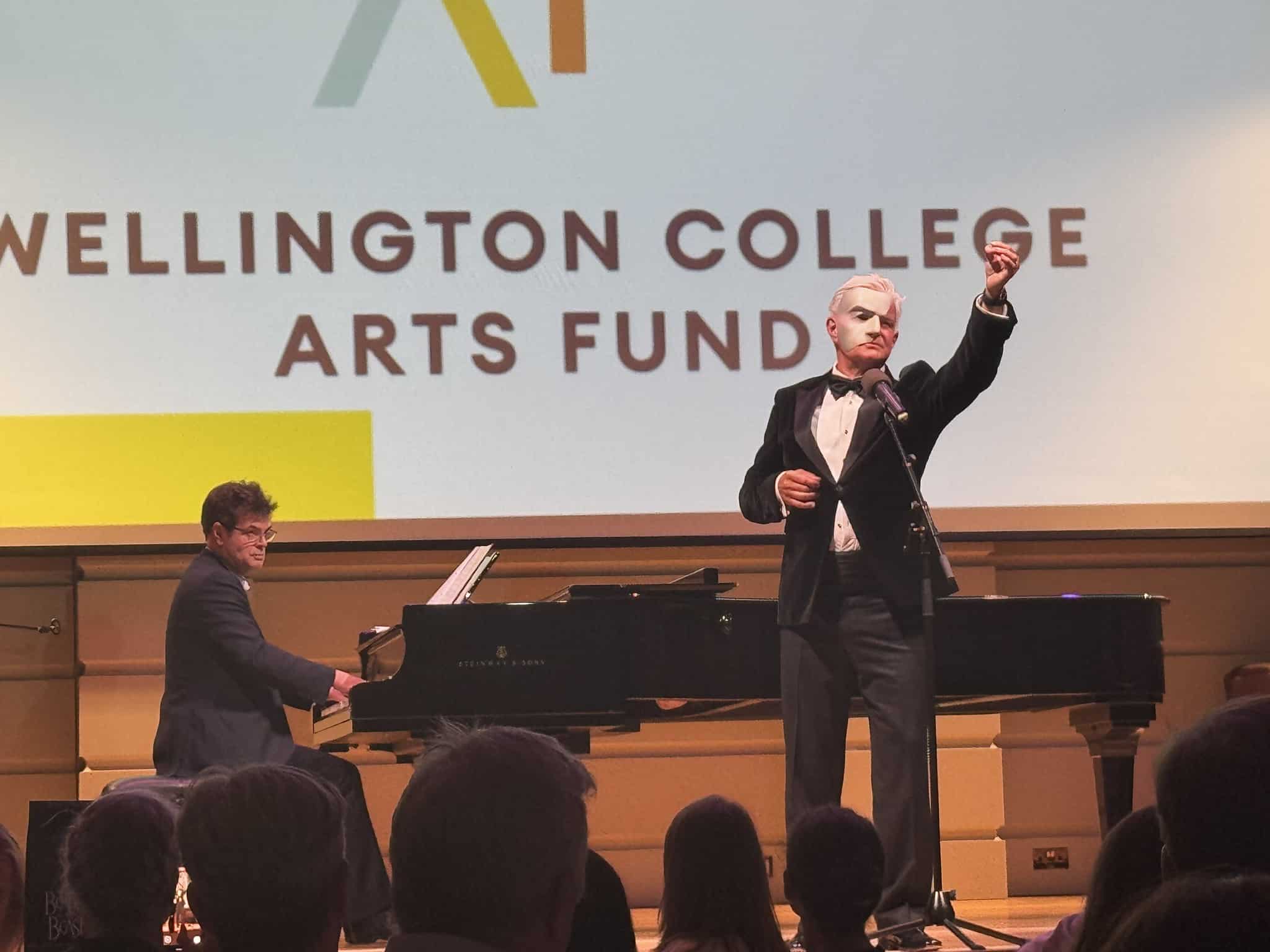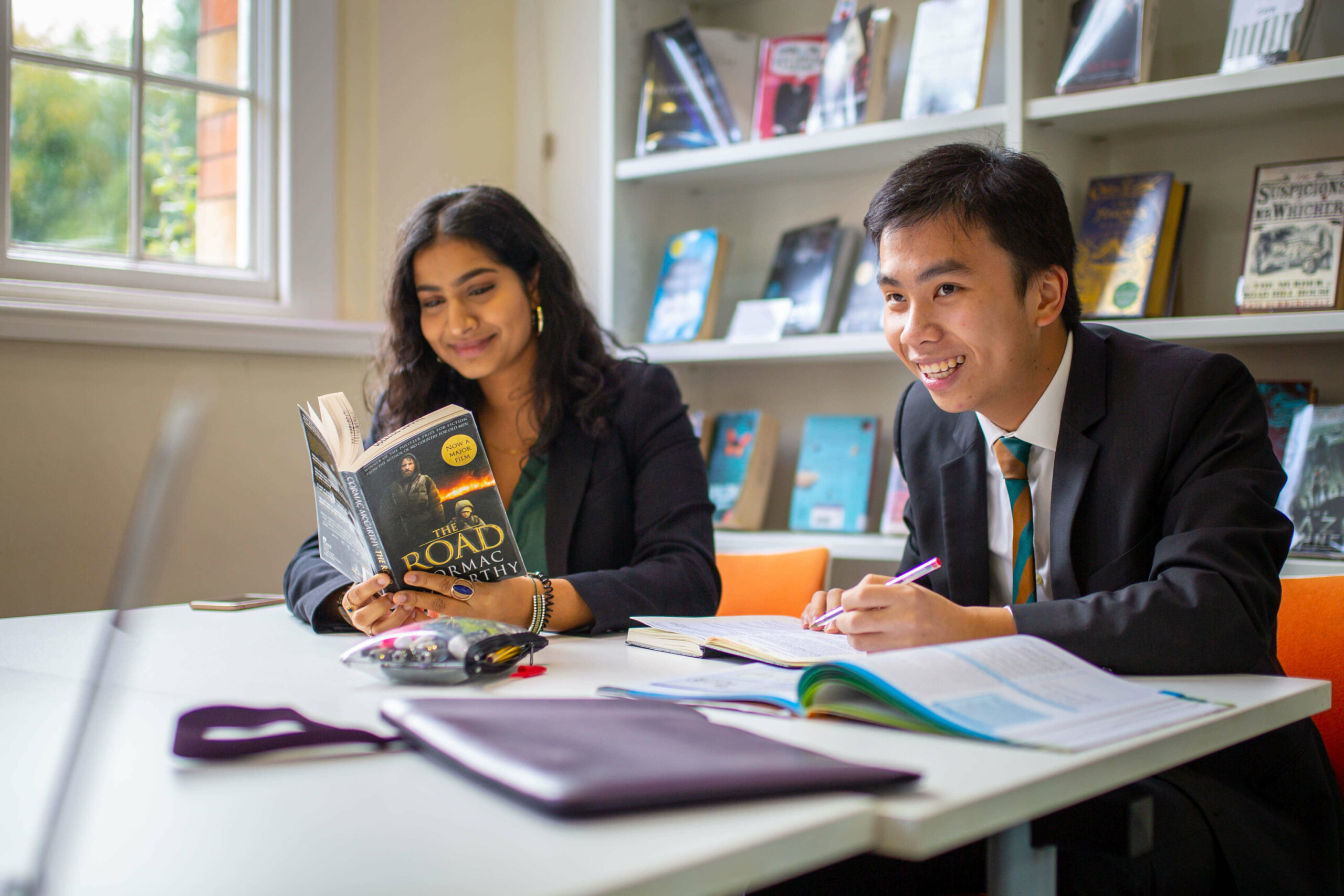
This year, 549 Fourth, Fifth and Sixth Form students are doing independent, externally assessed projects (HPQ/EPQ). Third Formers are developing their research skills and will soon begin work on their Malim Projects. In addition, 196 IB students are completing Extended Essays – the independent research component of the International Baccalaureate. With a grand total of 933 Wellington students engaged in independent studies, we explore the value of project work and why, as Julian Thomas commented, these are ‘figures to send (us) skipping home’.
Tristan Macleod, Head of Project Skills, reflects on a year of HPQ and EPQ and the ‘explosion of creative and academic talent’ that ensued.
Imagine a moment at school when the teacher turns to you and says, ‘for the next 10 months, explore what you want to explore, work on what you want to work on, produce something that you have always wanted to produce, and I will try and support you in whatever that is’. Just imagine that. That freedom, that opportunity. It doesn’t sound possible, or even wise, and yet that is what the whole of the Fourth Form and the entire A Level cohort at Wellington have heard at the beginning of this year from their Project Skills teachers as part of the HPQ or EPQ.
These qualifications, quite unlike any of the other qualifications that are sat at Wellington, are purely assessed on their ability to manage a project. No matter whether their project is to take a play up to the Edinburgh Festival, or write an extended essay on quantum mechanics and determinism, all students are assessed on their ability to manage their time, select and use appropriate resources, and problem solve on their way to producing their final product. We recognise that students who demonstrate these skills make better students across all their subjects and, by allowing students genuine space and support in exploring their interests, that students who have completed the HPQ or EPQ can make more informed choices about their Sixth Form courses, university course and even their career. This is recognised by universities who are, in increasing numbers, recognising Project Skills qualifications in their UCAS offers to students as being a genuine indicator of whether a student can work independently from the structures of school life.
However, it is important to stress that this is not simply classroom extension in another guise. Students certainly can use this to extend themselves in their class subjects, but these qualifications are a wonderful opportunity for students to extend their own interests no matter what that involves. Dramatists may want to put on a play, artists may want to create a piece of art, athletes may want to design a training regime, engineers may want to do product design, computer scientists may want to design an app, budding chefs may want to produce a recipe book, dancers may want to put on a dance show; the world really is their oyster. And if you don’t believe me, that list is an actual list of HPQs and EPQs that have either been completed or are in the pipeline at Wellington right now.
Pictured here are a couple from last year, including Ben Cooper (S) who stage-managed The Trial at the Edinburgh Fringe for his EPQ, James Chapman (Pn) who produced a food blog seen around the world for his EPQ, and Josh Burke (Bl) who has restored a 1981 Honda moped for his HPQ. These sit alongside other projects ranging from eco-friendly clothing, through the analysis of rocket flight, musical compositions that reflect the history of Jazz, a video promoting a house charity, to a short documentary on transport in London.
It has been wonderful to see such an explosion of creative as well as academic talent through these independent projects, and to see Wellingtonians exploring, within class time, areas that are truly important to them. If Project Qualifications have enabled this level of exploration, whilst also equipping students for the greater independence required at both Sixth Form and university then it has the power to truly transform a young person’s life.
The International Baccalaureate Extended Essay, by Richard Atherton, Director of I.B.
The Extended Essay is a compulsory part of the IB Diploma. It is a highly academic essay of 4000 words written within a subject of the student’s choice (such as English or History) or as a combination of two IB subjects (for example studying the treatment of depression using Psychology and Biology). Incredibly successful in terms of gaining IB points, but brilliant also for UCAS personal statement, Oxbridge interview or application to the USA. Last year saw an extraordinary variety of titles: Photovoltaic energy in Germany. Is contemporary art overpriced? The impact of Brexit on UK universities. To what extent might Rawls’ Veil of Ignorance be successful in creating an egalitarian society? The Gothic genre of Wuthering Heights and Freud’s uncanny. To what extent was Nasser a successful leader of Egypt? And perhaps my favourite… 城乡基础教育差异的原因分析及解决建议 —以山东省菏泽市为例.









